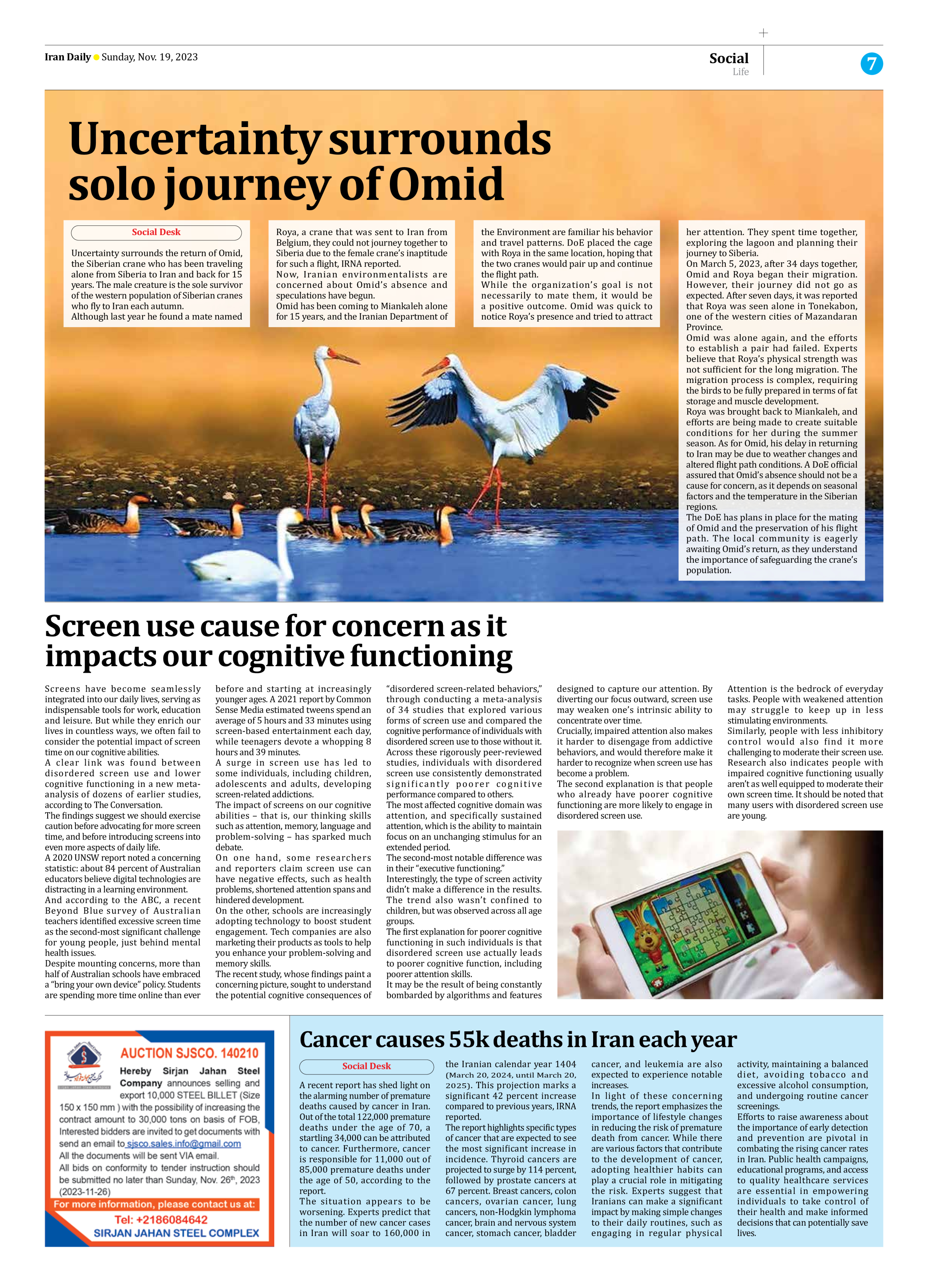
Screen use cause for concern as it impacts our cognitive functioning
Screens have become seamlessly integrated into our daily lives, serving as indispensable tools for work, education and leisure. But while they enrich our lives in countless ways, we often fail to consider the potential impact of screen time on our cognitive abilities.
A clear link was found between disordered screen use and lower cognitive functioning in a new meta-analysis of dozens of earlier studies, according to The Conversation.
The findings suggest we should exercise caution before advocating for more screen time, and before introducing screens into even more aspects of daily life.
A 2020 UNSW report noted a concerning statistic: about 84 percent of Australian educators believe digital technologies are distracting in a learning environment.
And according to the ABC, a recent Beyond Blue survey of Australian teachers identified excessive screen time as the second-most significant challenge for young people, just behind mental health issues.
Despite mounting concerns, more than half of Australian schools have embraced a “bring your own device” policy. Students are spending more time online than ever before and starting at increasingly younger ages. A 2021 report by Common Sense Media estimated tweens spend an average of 5 hours and 33 minutes using screen-based entertainment each day, while teenagers devote a whopping 8 hours and 39 minutes.
A surge in screen use has led to some individuals, including children, adolescents and adults, developing screen-related addictions.
The impact of screens on our cognitive abilities – that is, our thinking skills such as attention, memory, language and problem-solving – has sparked much debate.
On one hand, some researchers and reporters claim screen use can have negative effects, such as health problems, shortened attention spans and hindered development.
On the other, schools are increasingly adopting technology to boost student engagement. Tech companies are also marketing their products as tools to help you enhance your problem-solving and memory skills.
The recent study, whose findings paint a concerning picture, sought to understand the potential cognitive consequences of “disordered screen-related behaviors,” through conducting a meta-analysis of 34 studies that explored various forms of screen use and compared the cognitive performance of individuals with disordered screen use to those without it.
Across these rigorously peer-reviewed studies, individuals with disordered screen use consistently demonstrated significantly poorer cognitive performance compared to others.
The most affected cognitive domain was attention, and specifically sustained attention, which is the ability to maintain focus on an unchanging stimulus for an extended period.
The second-most notable difference was in their “executive functioning.”
Interestingly, the type of screen activity didn’t make a difference in the results. The trend also wasn’t confined to children, but was observed across all age groups.
The first explanation for poorer cognitive functioning in such individuals is that disordered screen use actually leads to poorer cognitive function, including poorer attention skills.
It may be the result of being constantly bombarded by algorithms and features designed to capture our attention. By diverting our focus outward, screen use may weaken one’s intrinsic ability to concentrate over time.
Crucially, impaired attention also makes it harder to disengage from addictive behaviors, and would therefore make it harder to recognize when screen use has become a problem.
The second explanation is that people who already have poorer cognitive functioning are more likely to engage in disordered screen use.
Attention is the bedrock of everyday tasks. People with weakened attention may struggle to keep up in less stimulating environments.
Similarly, people with less inhibitory control would also find it more challenging to moderate their screen use.
Research also indicates people with impaired cognitive functioning usually aren’t as well equipped to moderate their own screen time. It should be noted that many users with disordered screen use are young.







